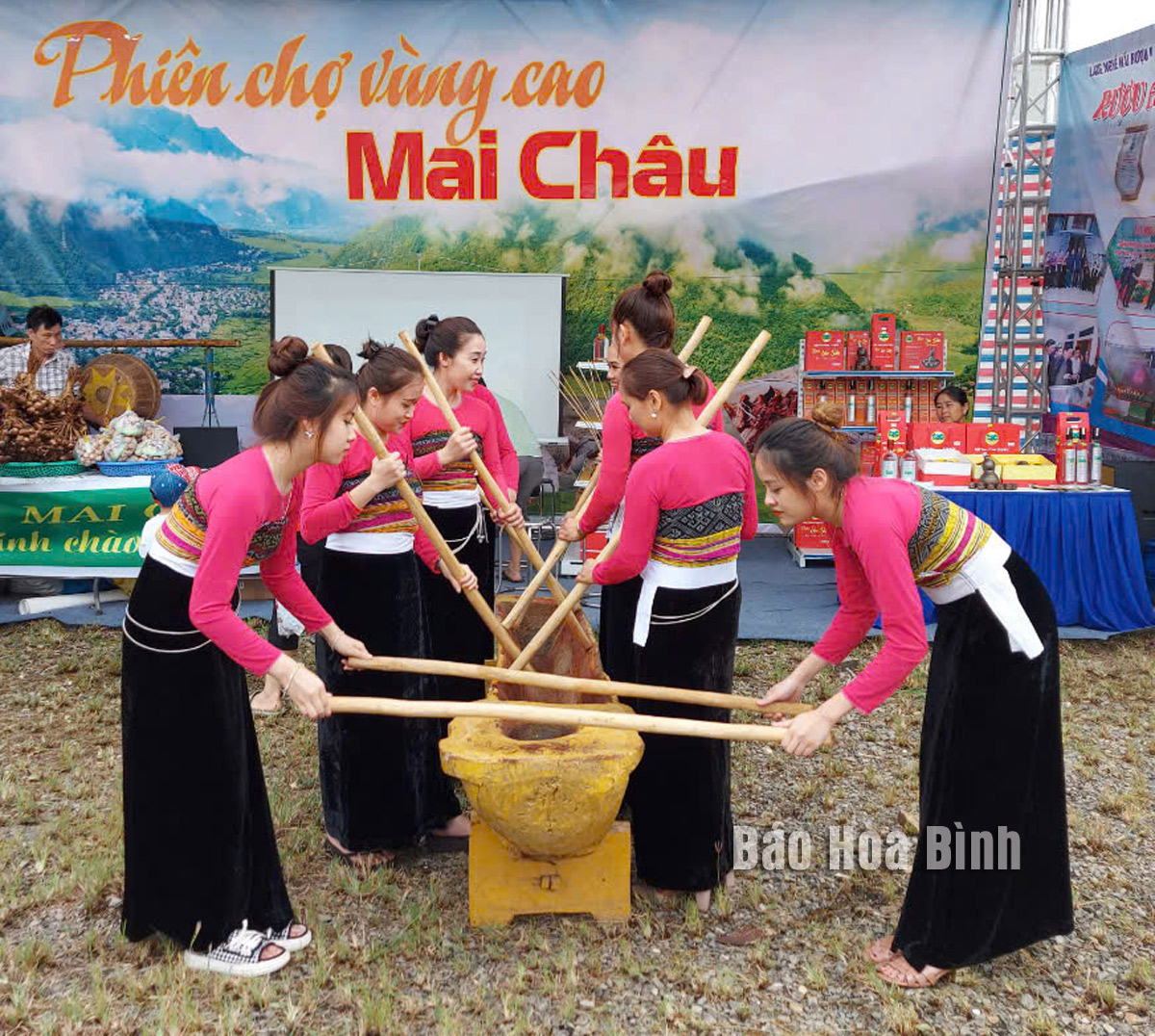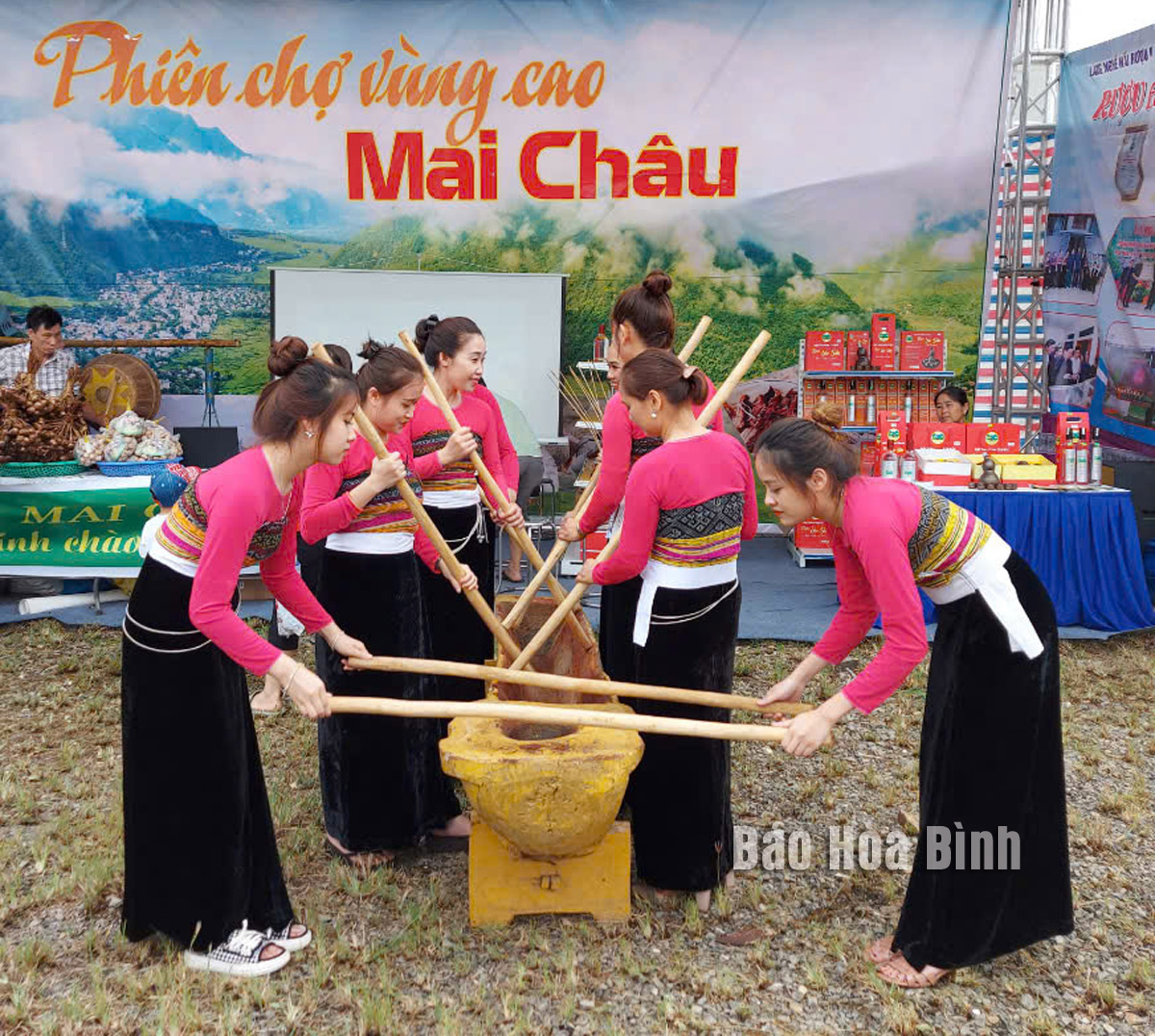



In 2023, Keng Loong – a traditional custom and belief of the Thai ethnic group in Mai Chau is recognised as part of the national intangible cultural heritage.
Le Anh Son, a tourist from Hanoi’s Hoang Mai district said when visiting Mai Chau, he felt relaxed in the poetic natural scenery of the mountains. He was attracted by the ripen rice fields, Thai people’s communal stilt houses and enjoyed traditional dishes, and cultural performances.
Nguyen Tran Anh, Secretary of the district Party Committee, said that taking advantage of the natural landscapes and unique cultural features of ethnic groups in the locality, the Standing Board of the district Party Committee in 2020 issued Resolution No. 15-NQ/HU on preserving the cultural identity of ethnic groups in association with tourism development in the district in the 2020 – 2025 period with a vision to 2030, along with several tourism promotion plans.
Party Committees and authorities at all levels in the district were asked to focus on attracting investment, encouraging the development of community-based tourism in tandem with preserving and promoting the cultural values of ethnic minorities.
Across the district, many clubs have been established to engage people in preserving cultural values. Local agencies also organised workshops and published books about customs of ethnic groups.
Folk games and ethnic costumes are promoted in traditional festivals and weddings. In particular, in 2023, Keng Loong - a traditional custom and belief of the Thai ethnic group in Mai Chau was recognised as part of the National Intangible Cultural Heritage by the Ministry of Culture, Sports and Tourism. Visiting Mai Chau, tourists can experience the traditional cultural identity as the district has turned traditional cultural practices into unique tourism products. Typical community-based tourism villages of the Thai ethnic group in the district include Lac village in Chieng Chau commune; Pom Coong and Van residential areas in Mai Chau town; Buoc village in Xam Khoe commune; Hich village in Mai Hich commune; and those in Hang Kia, Pa Co, Na Phon, Son Thuy, and Tan Thanh communes.
The district has invested in building and upgrading transport infrastructure, renovating and embellishing historical relics and scenic spots, preserving and developing tangible and intangible cultural heritage to better serve visitors.
Currently, five historical and cultural relics and scenic spots in the district have been recognised by the Ministry of Culture, Sports and Tourism. The district has 197 tourist accommodation establishments, including four resorts, nine hotels meeting 1-3 star standards, 31 motels, and 153 community guesthouses.
In July 2020, Mai Chau district was recognised as a provincial tourist area. In 2022 and 2023, Mai Chau was in the Top 10 friendliest destinations in Vietnam in the rankings made by booking.com. In 2023, the district welcomed over 656,700 visitors including 84,130 foreigners, earning total revenue of nearly 673 billion VND (26.5 million USD). In the first half of 2024, the district welcomed 494,160 visitors including nearly 102,180 foreign ones, with total revenue of nearly 593 billion VND.
The Secretary of Mai Chau district Party Committee said in the current context, developing tourism associated with protecting natural resources and environment, preserving and promoting ethnic cultural values is an urgent requirement to promote the sustainable development of the tourism industry in particular and socio-economic development in general. Unique cultural features of ethnic minority groups in Mai Chau district are preserved and developed effectively, helping to form typical tourism products thanks to specific plans.